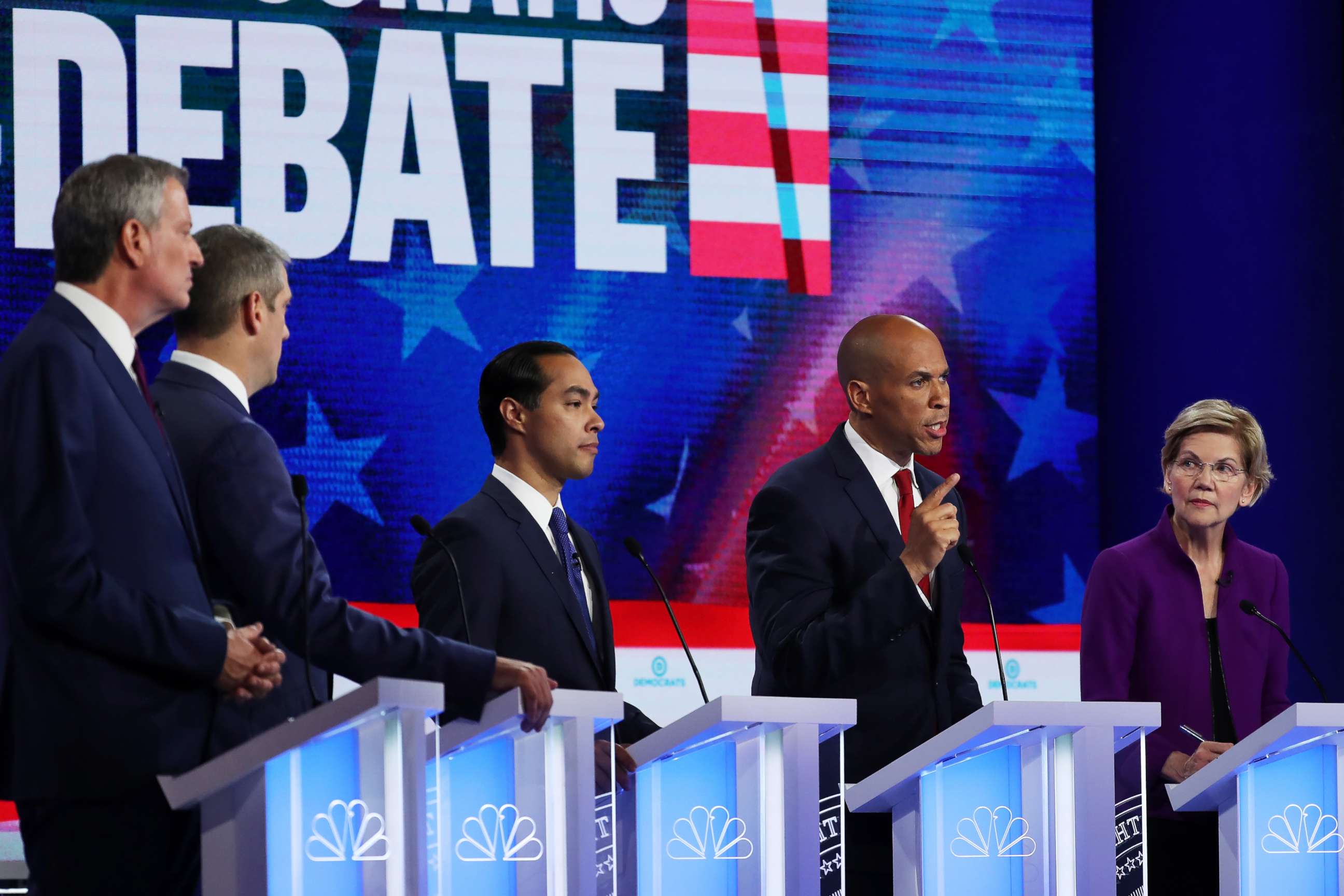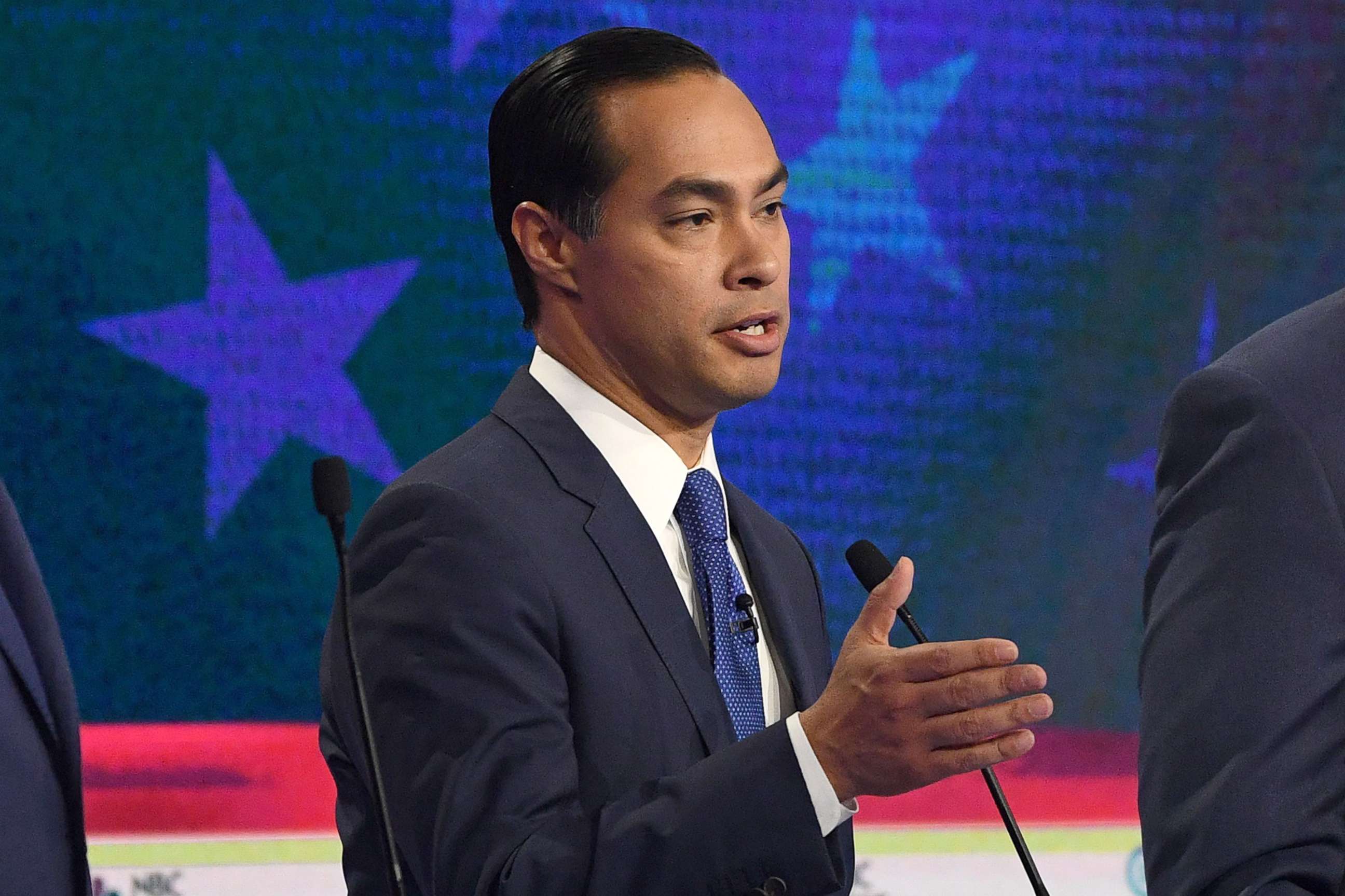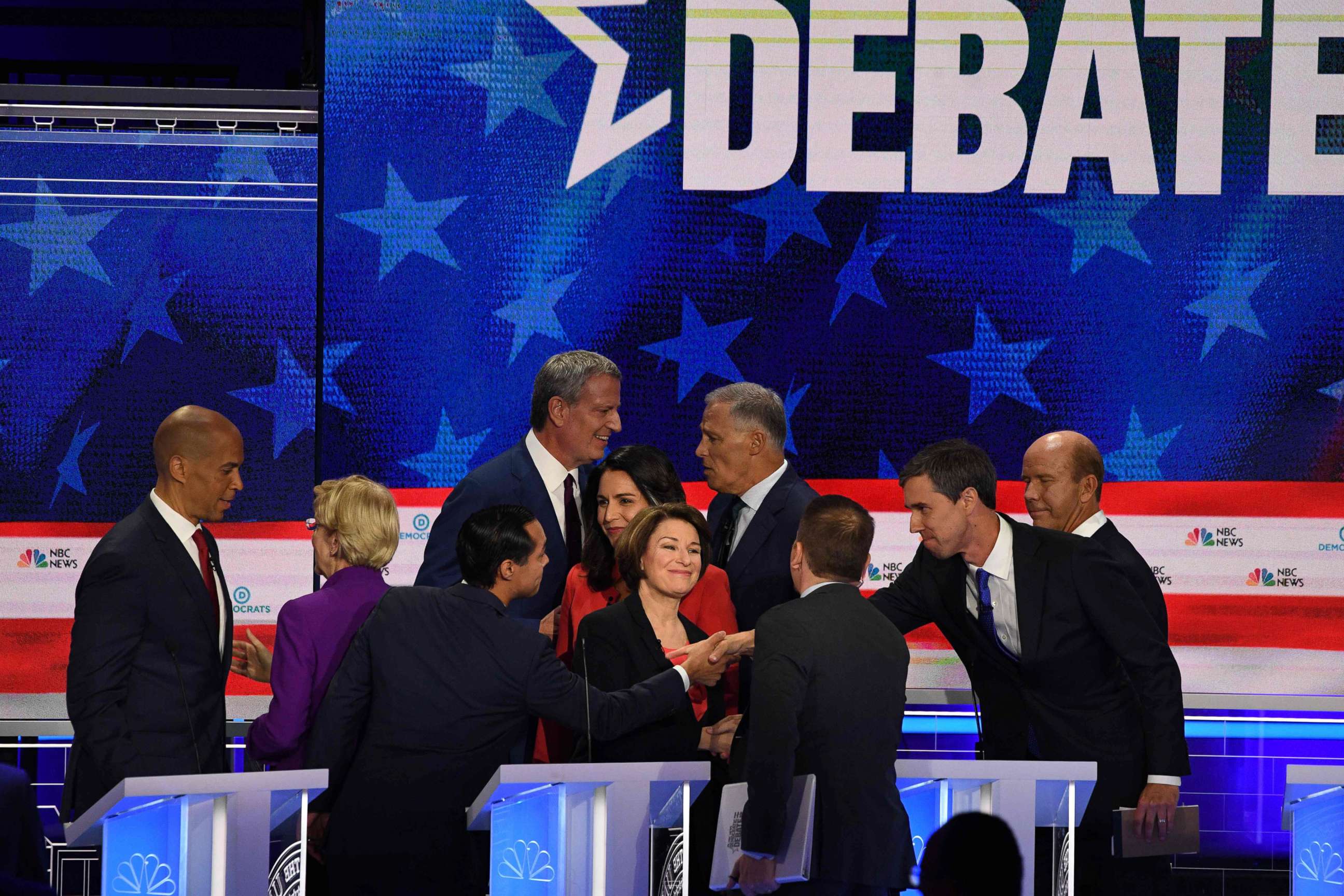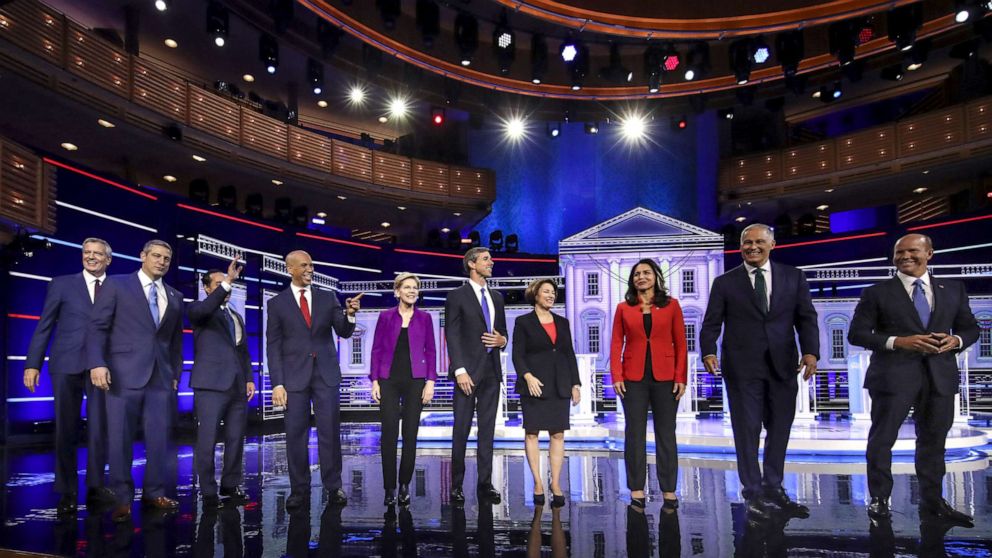Democrats squabble on their left, but mostly play nice at 1st debate: ANALYSIS
MIAMI -- They agree on one big thing. It’s the little things that might get them there that have Democrats locked in squabbles — fights that played out if only in the gentlest ways during night one of their first debate of 2020.
The urgency for Democrats to pick the right candidate to defeat President Donald Trump was the dominant theme of a sometimes disjointed kick-off debate Wednesday night.
How best to make that defeat happen formed the backbone of the disagreements among candidates. Those divisions played out on stage, though in relatively mild fashion for a group of candidates still seeking to define themselves to voters.
At the heart of many of their disagreements is how completely to push back at Trump and his rightward tilt in governance. On economic inequality, health care, guns and immigration, the most memorable exchanges were Democrats accusing each other of not being progressive or bipartisan enough to meet the moment.
The differences on policy and tone played out perhaps most dramatically health care. All the candidates indicated support for universal health care, though only two — Massachusetts Sen. Elizabeth Warren and New York Mayor Bill de Blasio — raised their hands when asked if they would “abolish” private health insurance.

“There are a lot of politicians who say, oh, it's just not possible, we just can't do it, we have a lot of political reasons for this,” Warren said. “What they're really telling you, is they just won't fight for it.”
Minnesota Sen. Amy Klobuchar offered a dose of practicality: “I am just simply concerned about kicking half of America off of their health insurance in four years.”
Former Texas Rep. Beto O’Rourke also defended keeping private insurance for those who to keep it: “We preserve choice.”
That drew a fiery response from de Blasio: “Why are you defending private insurance to begin with?”
Former Department of Housing and Urban Development Secretary Julian Castro tangled with O’Rourke over how bold to go on immigration reform. Castro pressed his fellow Texan to decriminalize border crossings — a policy that he argues has allowed the Trump administration to order harsh crackdowns.
“I just think it's a mistake” to keep treating unauthorized border crossings as criminal offenses, Castro said.

Still, if the policy distinctions weren’t vast, the differences in tone were more than obvious. There was Warren’s passionate, from-the-heart populism. There were doses of lifting-them-up optimism from New Jersey Sen. Cory Booker and O’Rourke.
Several other candidates — notably Klobuchar, Ohio Rep. Tim Ryan, and former Rep. John Delaney — sought to inject a more grounded pragmatism into the conversation.
“We have got to change the center of gravity of the Democratic Party,” Ryan said.
Those on stage reflected the diversity of the party the candidates hope to lead. Among the 10 candidates were three women and three candidates of color, with ages ranging from 38 to 70. Their home bases extend from Hawaii to Massachusetts and Minnesota to Texas.
It was telling that Booker and O’Rourke — not just Castro, the only Latino in the field — broke into Spanish unprompted. And several candidates used biography to suggest particular leadership qualities.
“I live in a low-income black and brown community. I see every day that this economy is not working for average Americans,” said Booker, who lives in a low-income neighborhood of Newark, N.J. Later, in a discussion about gun violence, he added: “I hear gunshots in my neighborhood.”

Klobuchar didn’t break from the other candidates on gun control, but played a Minnesota card: “I say, does this hurt my Uncle Dick and his deer stand, coming from a proud hunting and fishing state?”
On the whole, the Democrats on stage agreed on far more than they disagreed. They offered diverging answers on what represents the biggest threat to the United States, though it appeared Gov. Jay Inslee got the biggest applause for his response.
“The biggest single threat to the security of the United States is Donald Trump,” Inslee said.
The debate only hinted at the disagreements that figure to animate the next year for Democrats, with a field that will almost certainly start to narrow by the fall.
Unspoken on stage was the sense among Democrats that the bigger fight — the one featuring Sen. Bernie Sanders and former Vice President Joe Biden, who by themselves capture roughly half the primary vote in early polls — would come on Thursday.
Biden’s name was not spoken once. That will change quickly inside the primary race.




